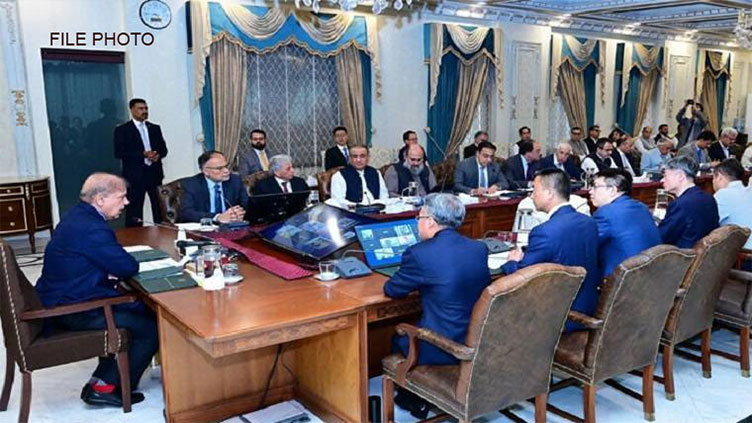Today, Prime Minister Shehbaz Sharif will chair a pivotal meeting of the federal cabinet at the Prime Minister’s Office in Islamabad. The agenda, widely anticipated by policymakers and analysts, encompasses critical discussions on economic reforms, public security measures, development infrastructure, and international diplomacy, setting the tone for the government’s strategic priorities in the coming months.
1. Economic Reform and Fiscal Stability
A central focus of today’s meeting will be a comprehensive economic reform package, crafted in consultation with the Ministry of Finance, State Bank of Pakistan, and key economic advisors. The package is expected to include measures aimed at:
- Stabilizing the national currency, responding to recent market pressures.
- Enhancing tax collection and export incentives, with special emphasis on sectors like agriculture, textiles, and IT.
- Strengthening public finances to secure International Monetary Fund (IMF) support and attract private foreign direct investment.
- Introducing social safety net enhancements, such as expanding cash assistance programs to vulnerable populations.
Cabinet members are expected to review preliminary findings on inflation trends, debt sustainability, and options to rebalance the national budget toward growth-friendly expenditures.
2. National Security and Counterterrorism
Given recent security incidents, the cabinet will assess an updated national security report prepared by the Ministry of Interior and military intelligence agencies. The agenda includes:
- Evaluating intelligence assessments related to cross-border and internal militant threats.
- Reviewing the status of counterterrorism operations in sensitive regions, including Khyber Pakhtunkhwa and Balochistan.
- Expanding and refining policing and emergency-response mechanisms in major urban centers.
- Engaging provincial administrations in synchronized efforts to curb violent extremism and strengthen community safety.
3. Infrastructure and Energy Sector Planning
Infrastructure priorities will be another major pillar of discussion as the cabinet evaluates proposals for:
- Advancing road, rail, and energy projects under the China‑Pakistan Economic Corridor (CPEC) and federal development schemes.
- Approving public–private partnership frameworks for power generation, renewable energy installations, and logistics infrastructure.
- Reviewing progress on recent initiatives such as solar-powered national highways and water distribution networks targeting disadvantaged areas.
This segment will also touch on upcoming tenders, budget re-allocations, and operational bottlenecks to expedite infrastructure rollout.
4. Healthcare, Education, and Social Services
Education and health remain core to the government’s human development agenda. The cabinet will examine:
- Updates on province-level education reforms, including training of teachers and digitization of student records.
- The progress and expansion of universal healthcare coverage, telemedicine, and mobile health units in rural regions.
- Launch strategies for women’s empowerment and labor force participation programs, including vocational training and microfinance initiatives.
5. Diplomatic Strategies and External Relations
On the international front, the Prime Minister will lead discussions on:
- Enhancing bilateral trade and investment relations with regional partners, including China, Gulf Cooperation Council states, the UK, and China.
- Preparations for imminent high-level diplomatic visits, both inbound and outbound.
- Developing key policy inputs ahead of major multilateral forums such as the United Nations and World Trade Organization.
6. Governance, Transparency, and Anti-Corruption Measures
Aligned with public expectations, the cabinet is expected to renew focus on governance. Agenda points include:
- Launching initiatives directed by the National Accountability Bureau (NAB) for boosting transparency in procurement and contract administration.
- Endorsing civil service reform strategies aimed at expediting administrative processes and digital governance.
- Reviewing progress on digital record management for various ministries, with the goal of reducing procedural lags and eliminating redundancies.
Why This Meeting Matters
The outcomes of today’s high-level cabinet meeting will set the course for policy implementation and governance effectiveness through 2025. In an environment shaped by economic challenges, security concerns, infrastructure needs, and public demands for improved services, the government’s ability to deliver concrete results depends heavily on the clarity, coherence, and coordination demonstrated in these sessions.
As Prime Minister Shehbaz brings together key ministers and decision-makers, observers and citizens will be watching for tangible action plans, clear timelines, and budgetary commitments. Effective follow-through on these resolutions will determine Pakistan’s trajectory in terms of economic resilience, social development, and global standing.



Comments (0)
No comments yet. Be the first to comment!
Leave a Comment